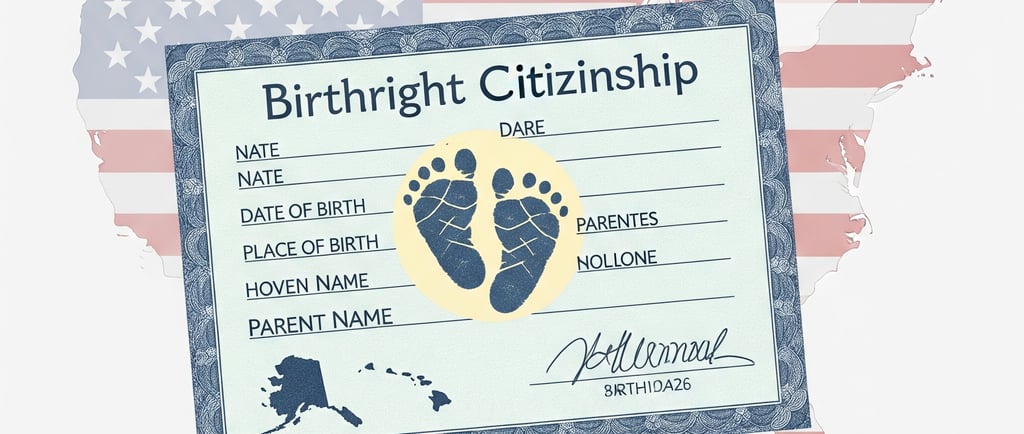Judicial Battles Over Trump’s EO 14160 on Birthright Citizenship and What Lies Ahead
6/30/20252 min read


I. Event Recap: How EO 14160 Came to Be
On January 20, 2025, President Trump signed Executive Order 14160 to “re-interpret” the Fourteenth Amendment’s “subject to the jurisdiction thereof” clause, aiming to strip automatic U.S. citizenship from children born to certain undocumented or temporary-visa holders. This move immediately sparked a wave of nationwide legal challenges, igniting fresh debate over the future of birthright citizenship.
II. Key Litigation Timeline
District Courts in NH & MA: Found EO 14160 likely unconstitutional and issued nationwide injunctions.
Supreme Court (6–3 procedural ruling): Held that a single district judge cannot issue a universal injunction; narrowed the injunction so it remains effective only within the issuing court’s jurisdiction.
III. Significance of the Ruling: Fragmented Enforcement vs. Judicial Boundaries
“One State, One Rule”
In jurisdictions where a district court injunction remains, EO 14160 is blocked.
In states without such injunctions, the order could briefly take effect.
Dual Victory for Procedure and Principle
Plaintiffs leveraged multiple regional lawsuits to collectively block the order.
The Supreme Court reinforced the principle that lower courts’ remedies cannot automatically apply nationwide.
IV. What’s Next: More Battlefronts and Diverse Paths
Substantive Hearings in District Courts
Each district will hear full constitutional arguments to decide whether to uphold or dissolve its own injunction.Appeals to Circuit Courts and Potential Return to SCOTUS
Any substantive district-court ruling could prompt appeals to the relevant Circuit Court—and ultimately back to the Supreme Court.Congressional Legislation & Future Administrations
If judicial processes drag on, Congress may step in to clarify the Fourteenth Amendment’s reach by statute, and a new president could issue counter-orders or revoke EO 14160 altogether.
V. Deep Reflection: The Enduring Fortress of Birthright Citizenship
Text and Spirit of the Constitution
Since 1868, the Fourteenth Amendment has guaranteed citizenship to “all persons born… and subject to the jurisdiction thereof,” underpinning America’s pluralistic identity.Judicial Guardrails vs. Executive Overreach
Regardless of political turnover or executive directives, the constitutional amendment remains supreme, with the courts vigilant against actions that would undermine it.Societal and Political Dynamics
Minority communities and civil-rights groups will continue to press both in the courts and in public discourse to ensure that citizenship cannot be revoked on the basis of parental status.
Conclusion
From district courts’ sweeping nationwide orders to the Supreme Court’s procedural limitation, and forward to potential congressional action or a future presidential reversal, the fate of EO 14160 is far from settled. Yet one thing is clear: this chapter in the birthright-citizenship saga will leave a lasting imprint on U.S. constitutional law and shape every future debate on nationality, sovereignty, and universal rights.
